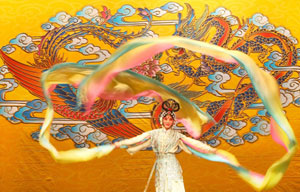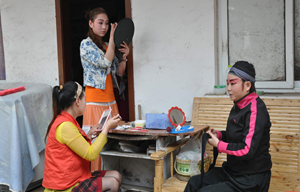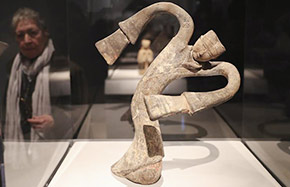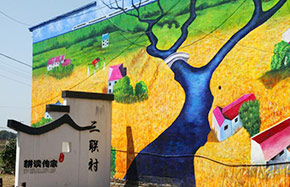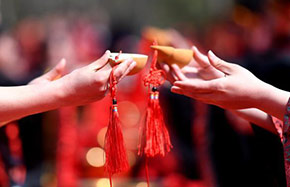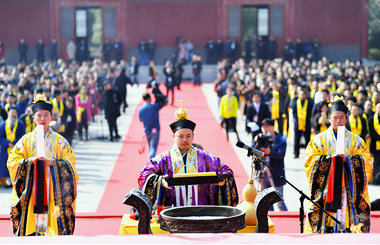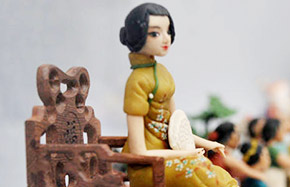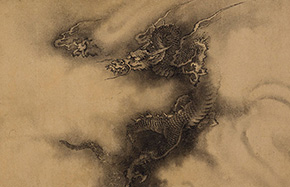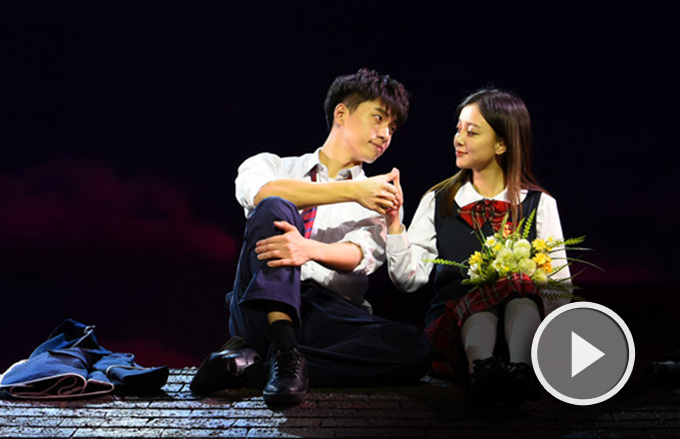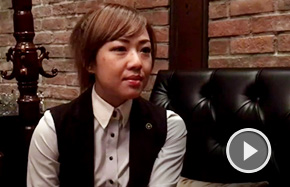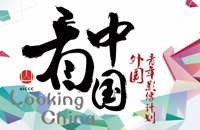Kunqu Opera's great survivor
As the middle child of five, Yue chose to study Kunqu because the school provided free lodging and meals. It was the early 1950s and public middle schools only took a small number of students. "I enjoyed singing but didn't know anything about opera," Yue recalls. "I took the audition to try my luck."
She was lucky, but the training was hard. Every day after dinner, Yue and her classmates would lean one leg on a tree to practice doing the splits for hours. "A classmate used to sleep at night with one leg tied to her head," she says.

Teachers at the school were China's best Kunqu artists, and they taught from decades of stage experience, Yue recalls. She says it is a pity that today's students no longer have such outstanding teachers. "Good actors love the stage and audiences love them there," she says, "but is there a way for actors to share more with young students?"
Shanghai Kunqu Opera Troupe was dismissed during the "cultural revolution" (1966-76). For four years Yue worked in a factory as a quality inspector of syringes. Opera singers spend years training their eye movements, but the factory work badly damaged her eyesight.
The dark cloud did have a silver lining. It was during her time in the factory that she got to know an engineer and fell in love. They later married and still live happily together. Their only daughter now lives in the United States, but shares her mother's passionate love for Kunqu.
When the Chinese economy started to open to the world, the cultural sectors were temporarily left behind. Nobody paid any attention to Kunqu or other traditional arts. Some of the most outstanding singers, such as Shaoxing Opera artist Zhao Zhigang, turned to business, opening restaurants and clothing factories.
"We were lonely and confused for a long time. We could not see any opportunities or the road ahead," Yue recalls.
Some brave young artists at the Shanghai Kunqu Opera Troupe went out of their way to make their performances accessible. Zhang Jun, who joined the company in 1994, led a small team and performed in schools and shopping malls under a simple banner.
With all their efforts, together with the cultural administration's recognition of the importance of creativity and traditional art, Kunqu Opera gradually won more public attention, especially from younger audiences.
Yue and her colleagues at Shanghai Kunqu Opera Troupe performed a series of successful concerts at Shanghai Oriental Art Center in March. They plan to tour Hong Kong in June.
Yue and her peers "experienced the golden age of Kunqu, as well as the hard times when there were fewer audience members sitting in the theater than actors on the stage", wrote Pan Yu in Oriental Morning Post about the concerts.
"They are like giant pandas, a most rare and precious treasure of the nation. Now Kunqu art is gradually coming back into the limelight."
Besides regular theater performances and tours, Shanghai Kunqu Opera Troupe now gives frequent lectures and workshops helping new audiences to learn about the intangible cultural heritage of China, says Gu. The troupe has a fan club of almost 10,000 members in Shanghai.
|
|
|
| Beijing opera makes London debut | Art for the ages |






